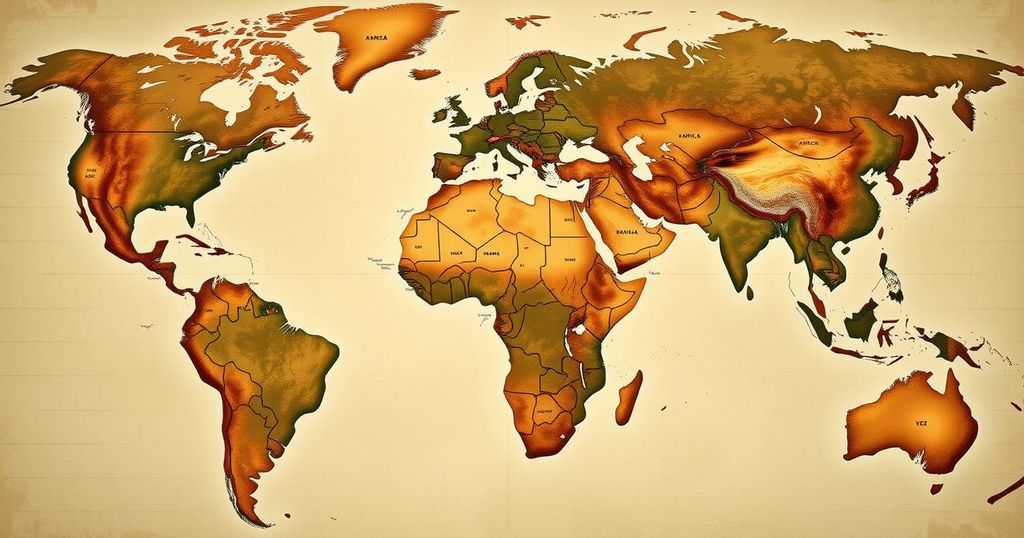World news
AFRICA, ANGOLA, BE, BEHALAL, CIVIL WAR, CONFLICT RESOLUTION, CONGO, CONGO (KINSHASA), CONGO RIVER ALLIANCE, DEMOCRATIC REPUBLIC OF CONGO, EUROPEAN UNION, GLOBAL INITIATIVE AGAINST TRANSNATIONAL ORGANIZED CRIME, HUMANITARIAN, KINSHASA, LUANDA, MILITARY COUP, NORTH AMERICA, REUTERS, TS, TSHISEKEDI, UNITED STATES, WAR, WEST AFRICA, ZOBEL BEHALAL
Daniel O'Connor
0 Comments
M23 Rebels Withdraw from Peace Talks with Congo Following EU Sanctions
M23 rebels backed by Rwanda withdrew from peace talks with the DRC following EU sanctions targeting the group and its officials. Despite this, the DRC government plans to proceed with the negotiations. The conflict has roots in historical tensions and resource competition, leading to significant humanitarian impacts.
On Monday, M23 rebels, backed by Rwanda, withdrew from impending peace negotiations with the Democratic Republic of Congo, just a day before the scheduled talks in Angola. This decision came in response to newly imposed sanctions from the European Union targeting the M23 group and Rwandan officials, which the rebel alliance claimed aimed to hinder the crucial discussions. Despite this setback, Congo’s President Felix Tshisekedi affirmed that his government delegation would attend the talks in Luanda regardless of the rebels’ withdrawal, signaling a commitment to engage in dialogue.
The ongoing conflict has roots in the aftermath of the 1994 Rwandan genocide and competition for natural resources in eastern Congo. Since January, the M23 fighters have made significant territorial gains, capturing the region’s two largest cities, leading to widespread casualties and displacing hundreds of thousands. The international community, including the United Nations, has accused Rwanda of supporting the M23, while Rwanda maintains its involvement is a self-defense measure against hostile forces.
The recent EU sanctions represent one of the most extensive actions against M23 and Rwanda to date, aimed at diminishing the financial incentives related to the conflict, particularly concerning Rwanda’s mineral wealth. Zobel Behalal, a senior expert in transnational organized crime, noted that these sanctions reflect recognition of the role that resource profits play in Rwanda’s military engagement. The M23’s Congo River Alliance criticized these sanctions as incomprehensible, claiming they obstruct meaningful dialogue and progress towards peace.
In a separate diplomatic spat, Rwanda severed relations with Belgium, demanding its diplomats leave in response to Belgium’s calls for strong EU action against Kigali. The Belgian Foreign Affairs Minister labeled Rwanda’s diplomatic move as disproportionate, indicating rising tensions between the two nations, historically linked due to colonial ties to the region.
In summary, M23 rebels have exited peace talks with the DRC amidst EU sanctions aimed at crippling the financial motives for conflict. The DRC government remains committed to attending negotiations regardless of the rebels’ stance. The escalating conflict has severe implications for humanitarian conditions in the region, while international tensions rise, particularly between Rwanda and Belgium. These developments underline the complexities and challenges faced in seeking a resolution to this multifaceted conflict.
Original Source: www.newsbreak.com




Post Comment